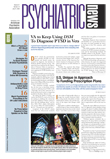It may start off as a snicker, a dirty look, or a belittling comment and then mushroom slowly, but inexorably, into put downs in front of colleagues, nasty comments behind a person's back, or the withholding of information a person needs to do his or her job.
It is called “workplace bullying,” and it is far from uncommon and can have a devastating impact on people's mental and physical health, authorities on the subject revealed at an APA annual meeting symposium in Toronto in May.
Virtually all employees have experienced, at some point, unkind words or behaviors from coworkers or superiors. But to qualify as workplace bullying, such verbal and behavioral abuse must be persistent, unwanted by the person at whom it is directed, and harmful to that individual, Loraleigh Keashly, Ph.D., a researcher at Wayne State University, reported.
Many American workers appear to be, or have been at some point, the targets of workplace bullying. In their U.S. Department of Veterans Affairs investigation, which included some 8,600 subjects, Keashly and her coworkers found that 94 percent had been bullied at least periodically, and 36 percent frequently. The National Institute for Occupational Safety and Health surveyed employees in more than 500 organizations to find out how many had been the victims of workplace bullying, Keashly also pointed out. Twenty-five percent reported that they had.
Workplace bullying is “a particularly noxious form of occupational stress,” Liza Gold, M.D., a clinical associate professor of psychiatry at Georgetown University, explained. Thus, it should come as no surprise that it can have a pernicious impact on people's mental and physical health.
Ten years ago, Renato Gilioli, M.D., a University of Milan psychiatrist, and colleagues established the first center in Italy to help victims of workplace stress and harassment. Since then, they have examined 3,279 individuals for workplace-related psychiatric disorders and found that 1,919 subjects (58.5 percent) were related to bullying. They then studied these 1,919 subjects to learn more about workplace bullying and its psychological consequences.
As Gilioli reported at the symposium, 68 percent met the criteria for an adjustment disorder, 18 percent met criteria for mood disorders, 10 percent had symptoms suggestive of posttraumatic stress disorder, and 4 percent showed signs suggesting other anxiety disorders.
Further, the victims of workplace bullying often have difficulty falling asleep, experience nightmares regarding their workplace situation, wake up feeling exhausted, and incur sexual impairment, Gilioli added, on the basis of research that he and his group have conducted in Scandinavia.
In fact, people who are bullied in the workplace may use alcohol or other substances to cope with bullying's injurious effects, Judith Richman, Ph.D., a professor of psychiatry at the University of Illinois at Chicago, reported. She and her colleagues found that this was the case in a study of some 2,500 university employees. One of the victims who met this particular profile was a female psychiatric resident. First a surgery resident derided her intellectual abilities, then a male psychiatric supervisor did. She started using alcohol to combat her distress, Richman explained, giving an example of the link between the substance abuse and bullying.
Alcohol, of course, is no solution to being bullied in the workplace. Yet there are no easy answers on how to deal with it, symposium speakers concurred. Nonetheless, some approaches appear to be more effective than others.
Confronting the bully or retaliating can be risky tactics, Keashly warned. The reason is that, by confronting the bully, the organization may view the complaining employee, and not the bully, as the problem employee.
Sometimes going to one's boss and discussing the problem can be helpful, Keashly said. So can talking with other coworkers about it and finding out whether they, too, are being bullied, and if so, perhaps forming an alliance with them. For example, Keashly said that she consulted on a case in Detroit in which one teacher bullied other teachers until one of the victims decided to not take it anymore. She talked various colleagues into joining her in reporting the bully to the principal.
But looking for a position in another organization is often the best solution, Gold advised, because if bullying is tolerated in the person's workplace, then “there is a culture there that supports it,” and it is highly unlikely that such a culture can be detoxified. ▪

